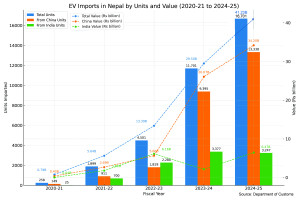Money
National lab gets accreditation to test farm goods
The National Food and Feed Reference Laboratory has received accreditation from India’s National Accreditation Board for Testing and Calibration Laboratories, allowing it to issue certification for an additional 75 parameters of edibles.
The National Food and Feed Reference Laboratory has received accreditation from India’s National Accreditation Board for Testing and Calibration Laboratories, allowing it to issue certification for an additional 75 parameters of edibles.
The Department of Food Technology and Quality Control said its laboratory had been accredited to ISO/IEC 17025:2017, which means it is technically competent to produce precise test and calibration data. The department can now offer international level certification for 102 parameters related to chemical and biological elements for the next two years. Officials said this would facilitate the export of domestic farm products.
The department received international accreditation for testing and product certification covering 27 different parameters including protein, micro-level fatty acid, dietary fibres and vitamins two years ago. The department can now certify 21 types of food items including tea, coffee, honey, ginger and large cardamom which are among the major export items, said Director General Sanjeev Kumar Karna.
According to him, traders will no longer need to go to India to get their products tested at an accredited laboratory before being exported. Karna said most of the parameters for which they received approval are related to testing for food safety such as Organochlorine and Organophosporous chemicals. While Organochlorine involves various types of pesticides, Organophosporous involves the contamination responsible for developing toxic elements.
The accredited laboratory is now eligible to certify acid value, peroxide content and refractive index in oil and ghee, pesticides and total soluble solid in processed fruits and vegetables, and total water extract, fruit fibre, lead and protein content in tea and coffee. Similarly, the department can also certify that local ginger conforms to the standard of condiment, volatile oil and fruit fibres.
The department has upgraded its lab that is fitted with internationally accepted food testing equipment with financial assistance from the European Union. According to Karna, it took the department three years to upgrade its equipment, human resources, methodology and checking of the variation to receive the accreditation.
The department said it had started the process to sign a memorandum of understanding and mutual recognition agreement with the concerned authorities of major export destinations to help exporters. “Currently, we are holding talks with the Food Safety and Standards Authority of India,” Karna said.
Certification by accredited labs is one of the pre-conditions for export in many countries. The establishment of such a lab can help address non-tariff barriers in the export of food items besides reducing the cost of trading for exporters, officials said.
Earlier, the European Union refused entry to Nepali honey citing pesticide issues resulting in a loss of exports worth Rs76 million in fiscal 2002-03. On a number of occasions, Indian authorities have barred entry to Nepali ginger, tea and large cardamom citing low quality.
The initiative is expected to aid the government’s move to facilitate the export of high export potential food items. Of the 12 products identified in the Nepal Trade Integration Strategy 2016, four are agricultural and forest-based products such as ginger, large cardamom, tea and medicinal herbs.




 20.69°C Kathmandu
20.69°C Kathmandu
















